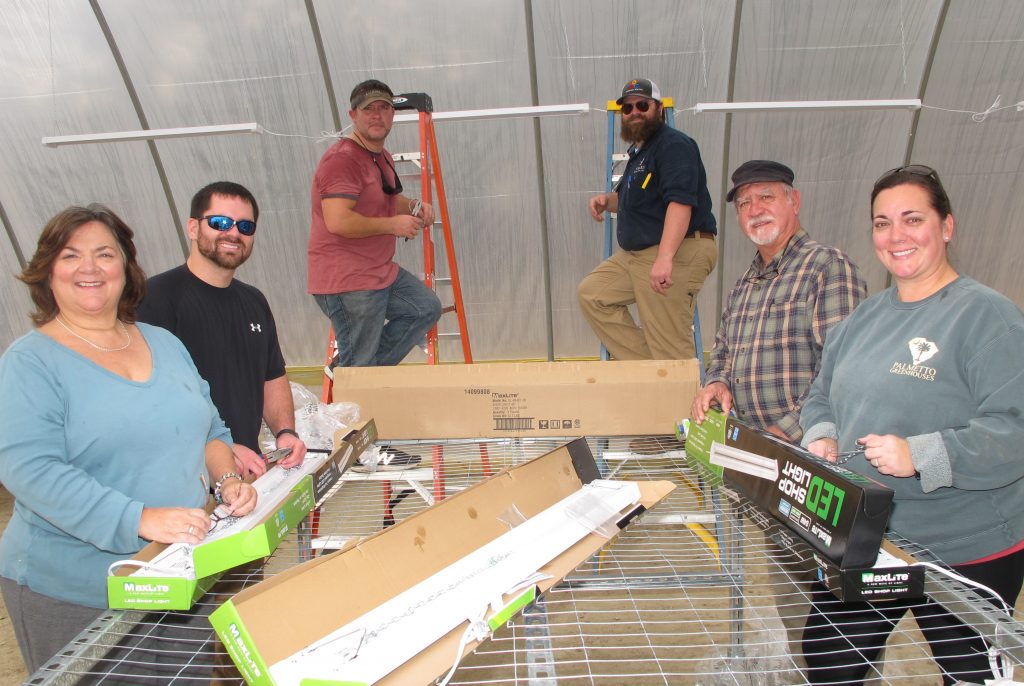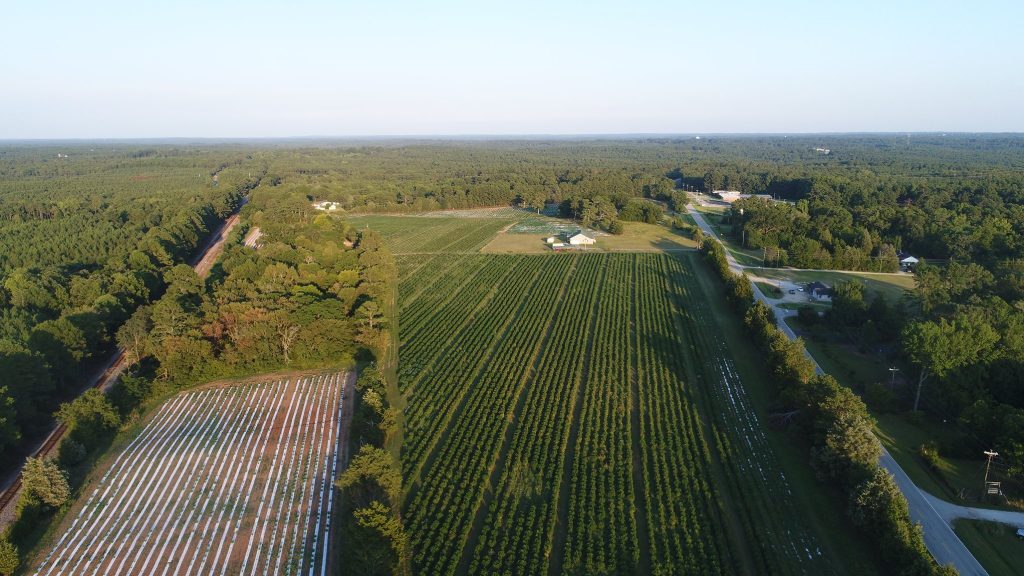
WINNSBORO – The first misconception Joe Wilkes would like to dispel is the idea that hemp is the same thing as marijuana; it’s not.
The hemp plants he’s growing on his family’s farm in Fairfield County are limited by law to 0.3% THC, the chemical in marijuana that causes a high. By contrast, plants grown for the drug have a THC content between 15% and 25%.
“In other words, you could smoke a truckload of hemp and all you’re going to get is a headache and a sore throat,” he says.
Though the plants are cousins which look and smell alike, he’s growing hemp to produce CBD oil, a product that’s gaining popularity as an alternative to pills for treating pain, inflammation, and anxiety.
“It’s just got so many benefits for the human body,” says Wilkes, who became a believer in the product when it virtually eliminated the pain from his recent shoulder surgery.
The process of growing hemp is a little bit like growing tobacco – and tobacco equipment can be adapted for growing it. The plants are first started in a greenhouse and later transplanted to the field. When the growing season is done, they’re hung up to dry in a barn to reduce the moisture content. Then the useful part of the plant is separated from the waste.
In the case of CBD oil, the part that’s used is the buds; the plants are all feminized clones, which are used so they don’t go to seed.
For Wilkes, who received one of 40 permits that were issued for hemp in South Carolina last year – the first in Fairfield County – there’s been a learning curve. But he says it’s been very rewarding.
“I don’t know how many people in Fairfield County told me I was just as crazy as I could be trying to get into farming,” he says, “but the hemp industry is an industry that could bring farming back to life in our area.”
For him, growing hemp represented a chance to earn a living at home after years working in the nuclear industry. Once word of the opportunity gets out, he thinks more people are likely to try it – especially since permits won’t be so limited going forward.
In anticipation of this, he’s setting up a processing facility in a commercial building he owns in downtown Winnsboro and is installing greenhouses on the farm, which will supply hemp plants to his farm and others.
Interestingly enough, hemp has a long history in Fairfield County; there’s record that the Lyles brothers, who were among the county’s first settlers in the 1740s, grew hemp as a cash crop, which they floated down the river to Charleston.
Hemp has a lot of uses, Wilkes says, and before World War II it was used widely in producing things like rope, canvas, and even interior car parts. But it was later outlawed in the United States because of its resemblance to marijuana. In recent years, some of the restrictions have been lifted.
“Nobody knows about this plant – it hasn’t been grown in 70 years – so we’re in a pilot program, and we’re sort of setting the foundation and groundwork for people in the future to see if it’s a viable crop for South Carolina, and I think it will be,” he says.
“It’s a very hardy plant. It doesn’t take a lot of care, it doesn’t take a great deal of water… and the good thing about it is it doesn’t have any attraction for deer or rabbits.”
Wilkes says he learned a lot in the past year. With no approved pesticides – due largely to the crop’s lack of recent history – he had to use natural means of pest control, most notably releasing 9,000 ladybugs that he ordered online. Of the five varieties of hemp that he planted, only two did well in the local climate.

Finding labor was also a challenge; he was able to find some help from local high school and vocational students, though he lost one enthusiastic worker whose grandmother forbid him working there due to hemp’s association with marijuana. Wilkes ultimately had to hire half a dozen foreign workers, who he brought for three weeks from a farm in another part of the state.
Though learning to grow a new crop has its challenges, he says hemp farming could provide an agricultural boost in Fairfield and surrounding counties.
“I really believe this is an opportunity for people of Fairfield, that you know have not been privileged to the best in life for a long time – they can get into this,” he says.
“It’s a good crop to get into because it’s not hard to grow and you don’t have to grow a tremendous amount of acres to make a decent amount of money, so it’s an avenue for people to do better in Fairfield County and Richland County and surrounding areas. It’s a way for guys to get back into agriculture and to support families.”
Hemp Applications Available Feb. 1 for 2020 Season
COLUMBIA – The South Carolina Department of Agriculture (SCDA) will accept applications for hemp farming, handling and processing permits for the 2020 growing season starting Feb. 1, 2020.
In 2020, there is no cap on the number of permits SCDA can issue, and no cap on hemp acreage. SCDA will no longer allow “responsible parties” growing under another farmer’s permit, meaning each person who wishes to farm hemp must apply for a permit.
Requirements to receive a hemp farming permit include:
- Proof of South Carolina residency
- Criminal background check
- $100 nonrefundable application fee and $1,000 permit fee
- GPS coordinates of all locations on which hemp will be grown
Attending an SCDA orientation and signing a Hemp Farming Agreement prior to possessing any hemp, including clones and seeds
A free Hemp Resource Event is scheduled for Friday, Feb. 28, 2020, from 9 a.m. to 4 p.m. at the Phillips Market Center, 117 Ballard Ct. in West Columbia. There will be vendor booths, discussions and other resources.
For more information about the South Carolina Hemp Farming Program, visit agriculture.sc.gov/hemp or call Vanessa Elsalah at 803-734-8339.










